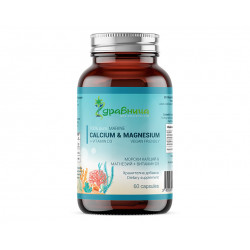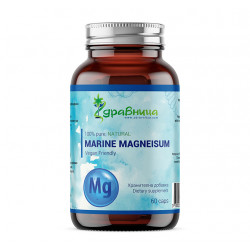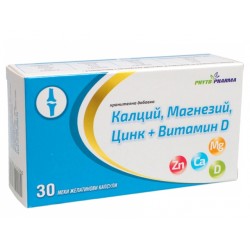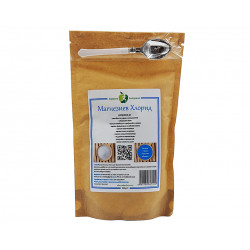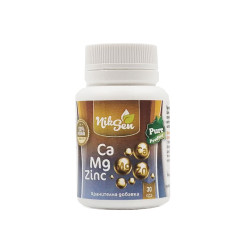Magnesium is one of macronutrients in our body, i.e. is found in greater quantities, as opposed to trace elements. The recommended intake is 320 mg per day for men and 300 mg - for women.
It can be supplied by milk and dairy products, grains, meat, bananas, tea, coffee and more. Keep in mind that alcohol reduces the absorption in the body. When blanching and cooking increases its absorption rate, as well as in milling of cereal food (in the form of various flours).
Its absence in the body can affect and lower nerve conduction and muscle contraction, cause cramps, tremors, and weakness in the muscles, loss of sensation, heart rhythm disturbances and reduced pumping function of the heart .
Magnesium, unlike calcium prevents ie inhibits blood clotting, which means you do not have to overdose too much.
Magnesium chloride was dissolved in water and it contains magnesium and chloride ions, which means that the body 2 in its delivers a: magnesium and chlorine.
Chlorine is also among the macronutrients. Experts recommend a daily 800 mg per day. Its absence leads to growth disorders, muscle weakness and alkalosis.
Chlorine is an integral part of the gastric hydrochloric acid. And acts as a "buffer" in the body, protects the body from too much alkalinity or appear too acidic environment. Chlorine also affects blood pressure.
* Find a product for a specific disease such as write his name (eg .: Diabetes)
No products
Why magnesium is important for our health?
Health products

Related products
- Marine Calcium and Magnesium with vitamin D3, Zdravnitza,...
Completely natural product containing the mineral complex "Aquamin F" - a bioactive source of calcium and magnesium of marine origin with added Vitamin D3.
9,05 € / 17,70 лв - Marine Magnesium, Zdravnitza, 60 capsules
Marine magnesium of "Zdravnitza" contributes to maintaining the health of bones and teeth, normal muscle function, normalization of energy metabolism and more.
8,95 € / 17,50 лв - Magnesium, food supplement, 30 softgel capsules
Magnesium contributes to maintaining normal bone and tooth status, normal muscle function, reducing fatigue, etc.
3,27 € / 6,40 лв - Calcium, Magnesium, Zinc and Vitamin D, PhytoPharma, 30...
Nutritional supplement that supports the health of bones, joints, hair, nail teeth, contributes to the normal function of the immune system, etc.
3,90 € / 7,63 лв - Marine magnesium, Vegetamin, 60 capsules
Marine Magnesium favors the health of muscles, bones, nervous system, brain, improves the mental and emotional state of man.
6,75 € / 13,20 лв - Magnesium chloride, dieatry supplement, Zdravna Akademia,...Отзиви към продукта: 2
Magnesium chloride reduces fatigue and tiredness, supports electrolyte balance, normalizes metabolism and energy production.
10,23 € / 20,01 лв - Calcium, Magnesium and Zinc, Niksen, 30 tablets
Calcium, magnesium, zinc contribute to the normal maintenance of the health of the nervous system, bones, muscles, teeth, hair and nails.
2,91 € / 5,69 лв - Supermagnesium, solution, Veridia 21, 200 ml
Supermagnesium contains the most common mineral deficiencies (magnesium, potassium, zinc) and vit. B6.
6,29 € / 12,30 лв



